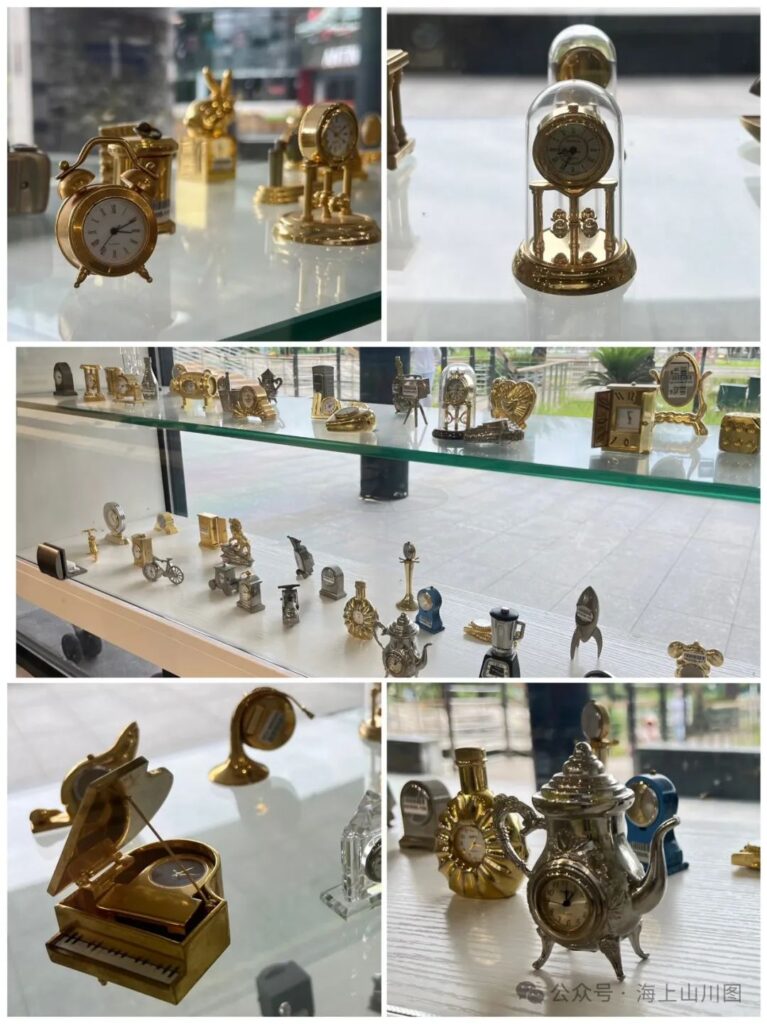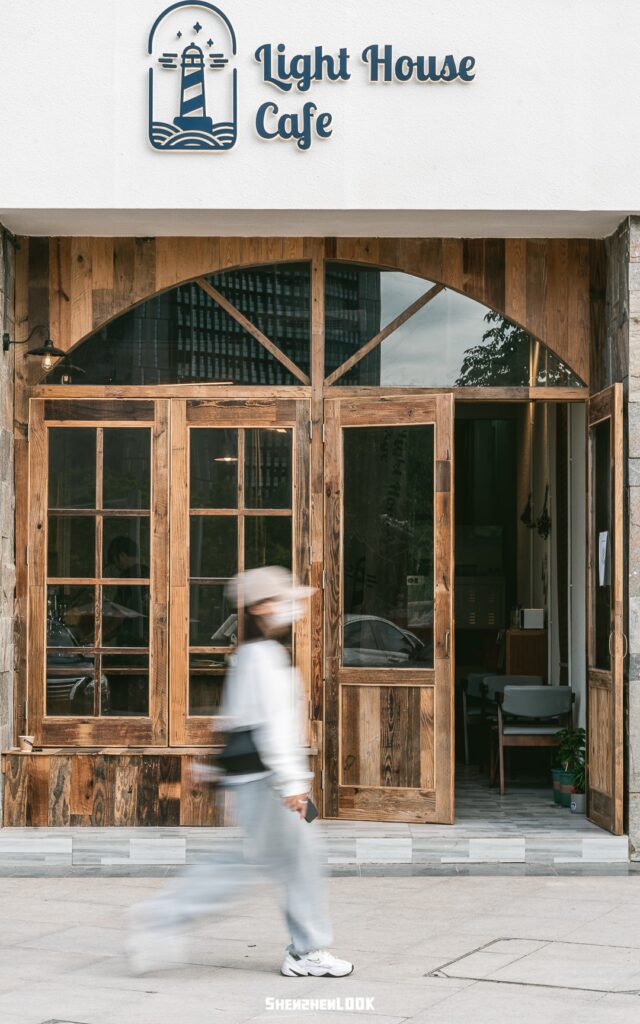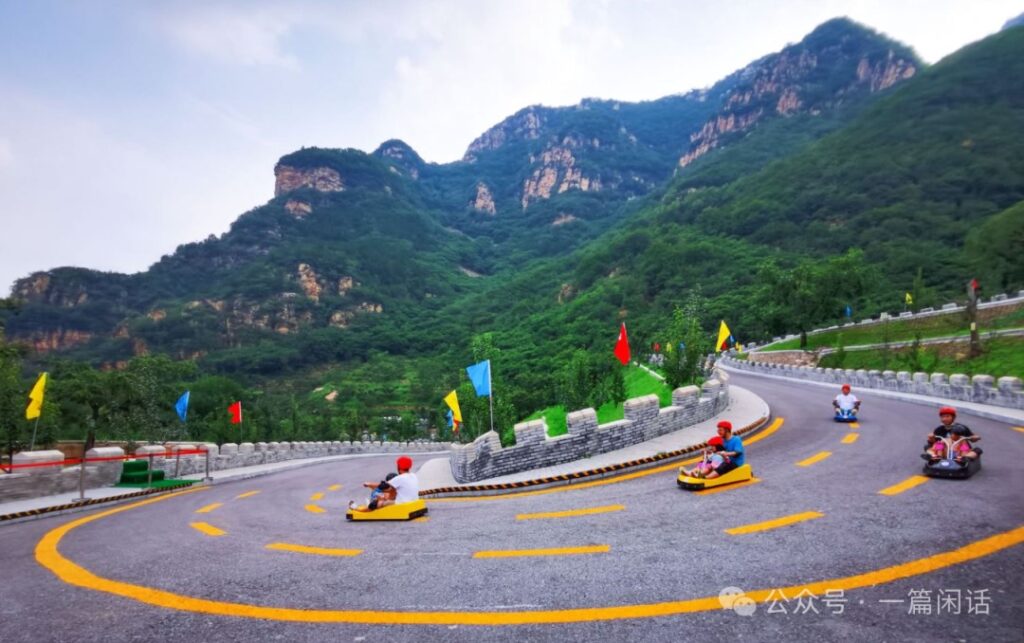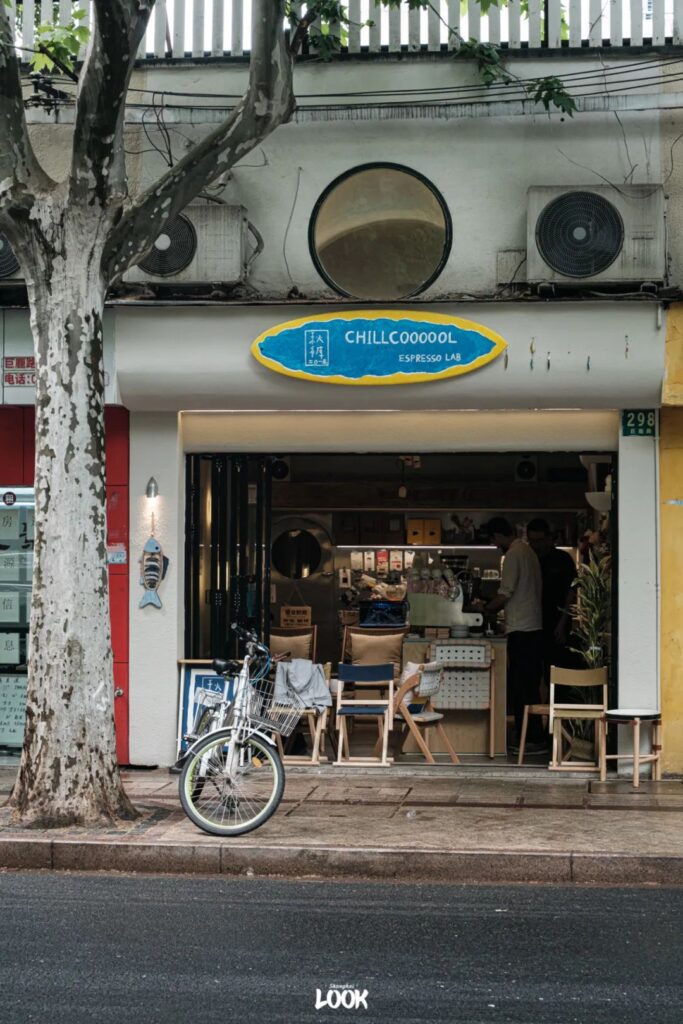Nestled at the junction of Sichuan and Yunnan provinces lies the “Pearl of the Plateau” – Lugu Lake. This enchanting lake is divided into two parts, “Liang Hai” and “Cao Hai,” each with its unique charm that attracts visitors from all corners of the world.
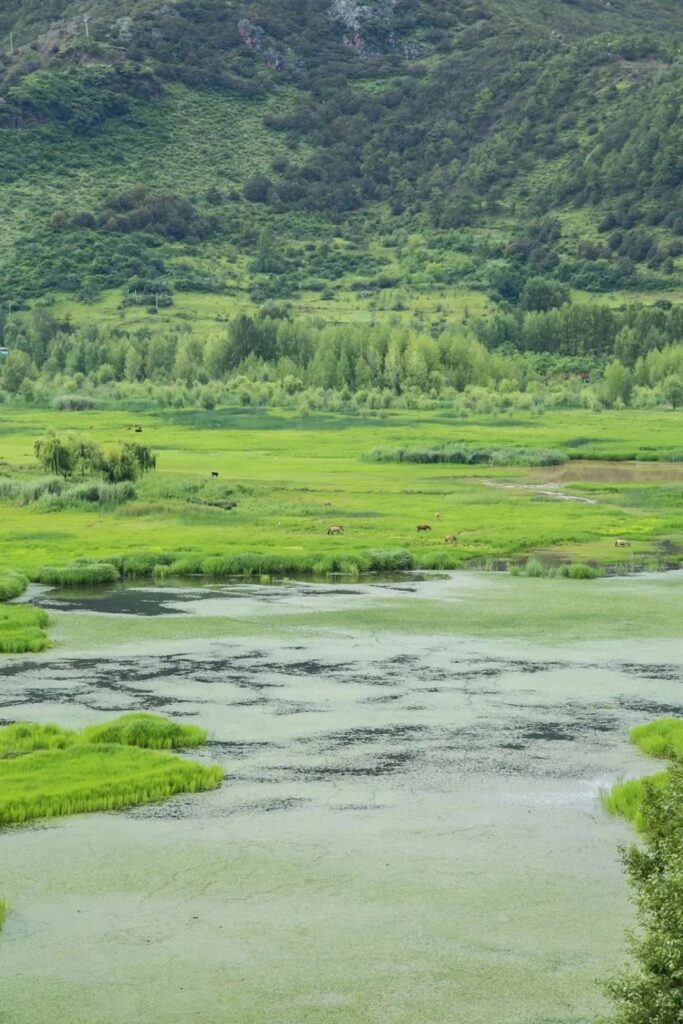
Cao Hai, located in the southeast of Lugu Lake, is shallow due to years of silt accumulation and is covered with dense grasslands. When early summer arrives, the vast expanse of Cao Hai becomes refreshing and lush, resembling a meticulously crafted water garden by nature itself.
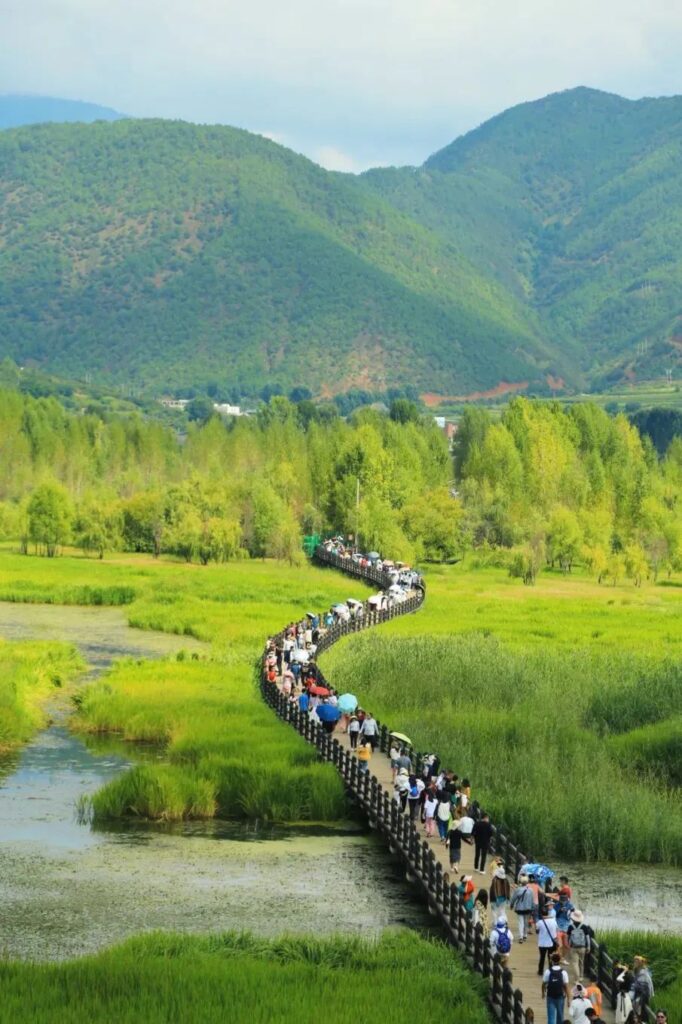
bove Cao Hai is the Walking Marriage Bridge, stretching over 300 meters. Originally built during the tribal chief era, this bridge is a romantic walkway where shy Mosuo lovers first meet, earning it the title of “The World’s No.1 Love Bridge.”
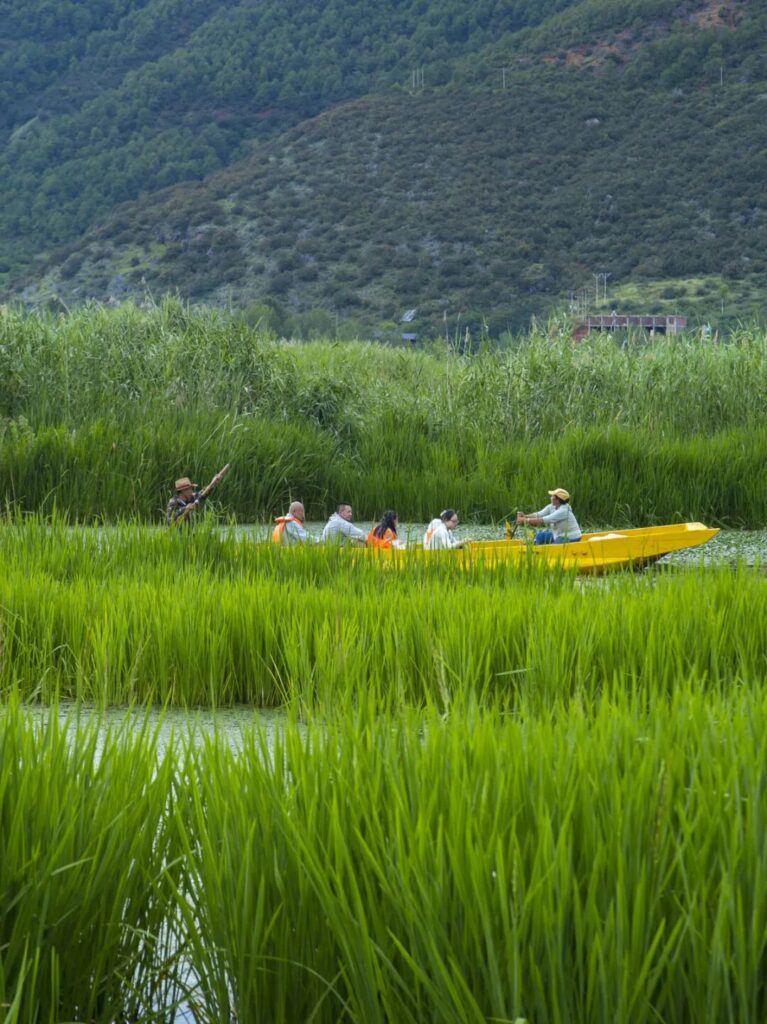
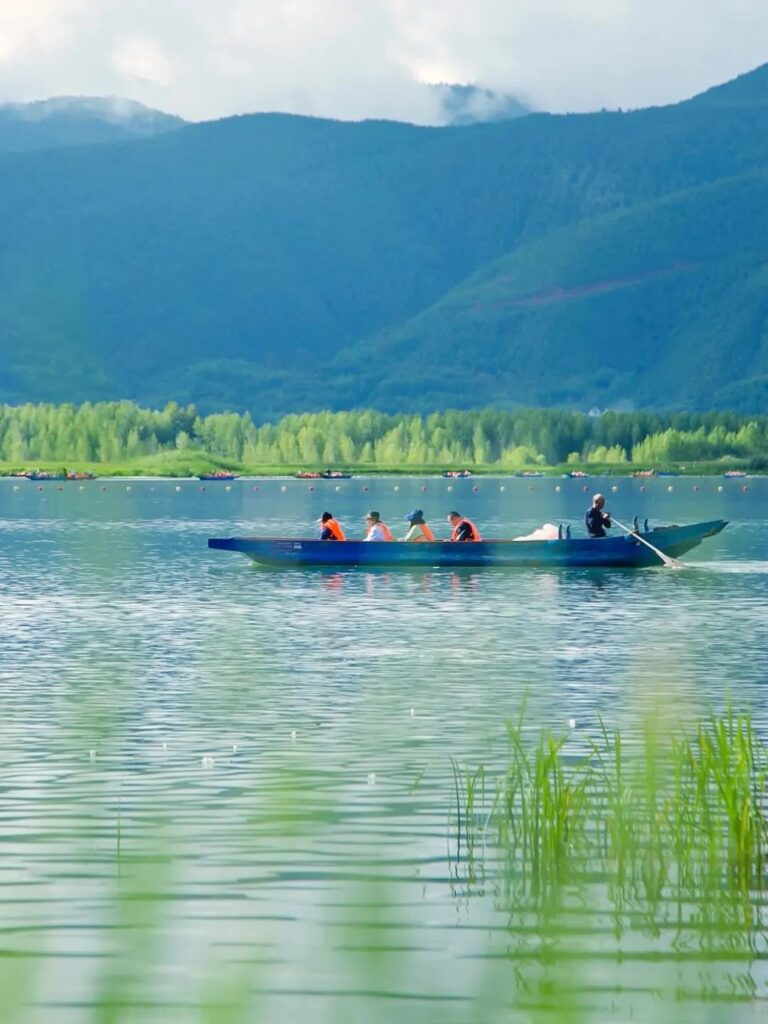
In early summer, the best way to explore Cao Hai is by riding a grandmother boat. Watch as Mosuo young men row the boat while listening to the melodious Mosuo folk songs, surrounded by verdant grasslands that lead you into a tranquil and mysterious world.
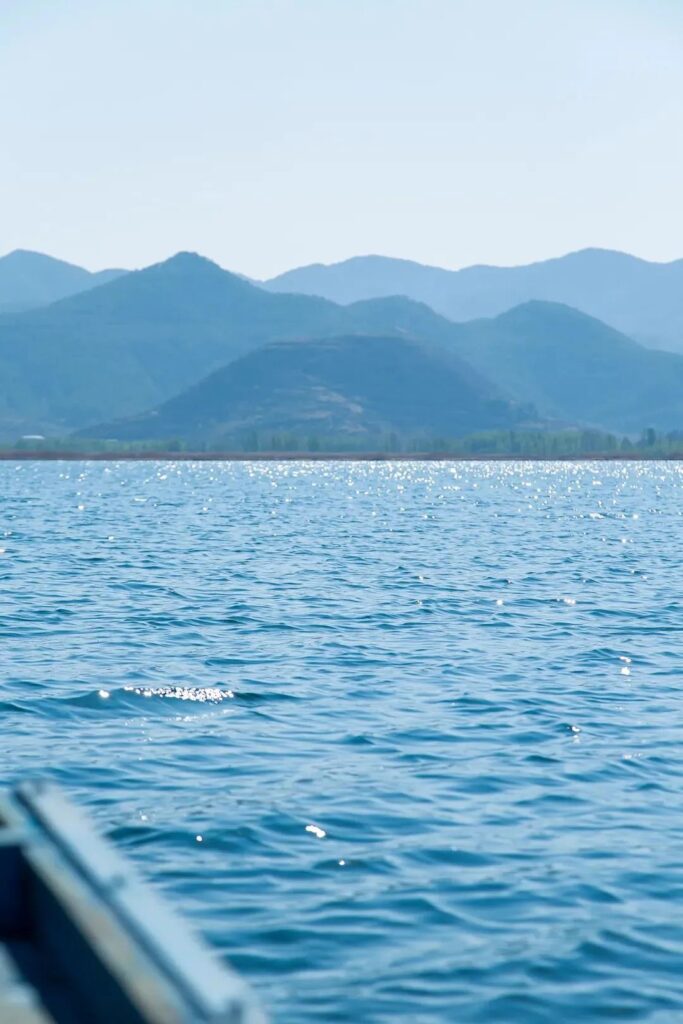
Gaze upon the calm, azure lake surface adorned with thousands of blooming algae flowers. These adorable blossoms blanket the lake like a sea of white petals, resembling pearls scattered across a blue lagoon. Under the sunlight, the flowers seem to come alive like enchanting sprites, gracefully swaying and creating gentle ripples.
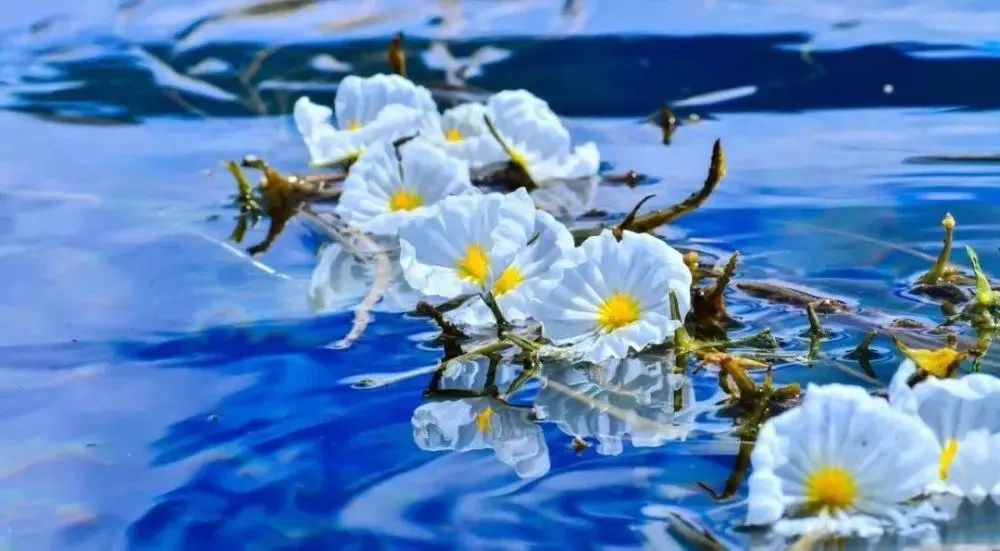
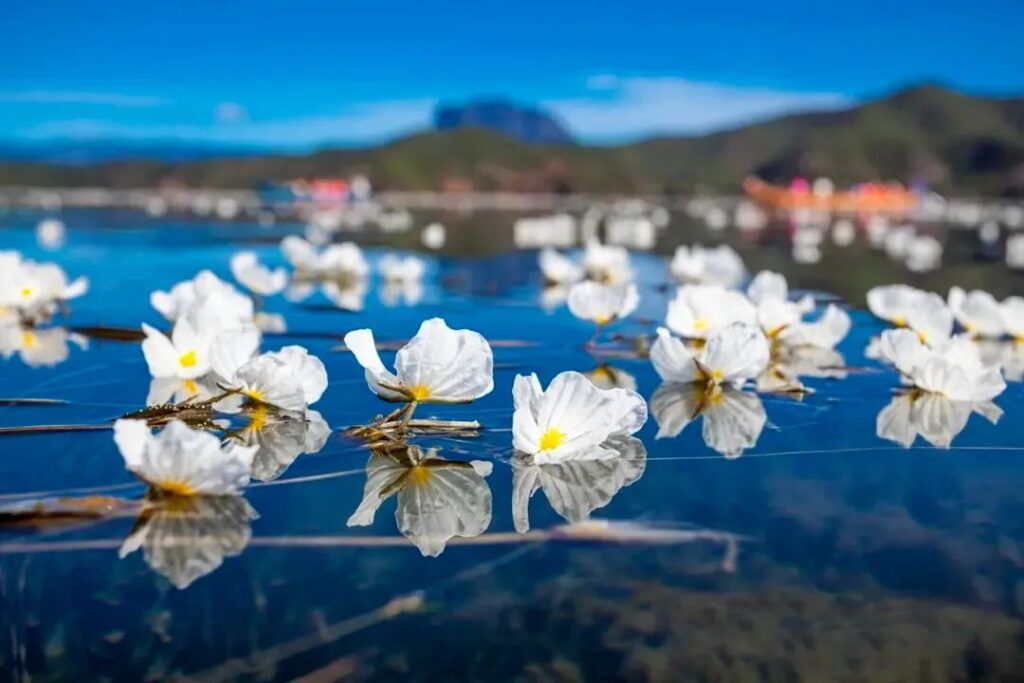
Beyond Cao Hai lies Liang Hai, where the water clarity is said to reach up to 12 meters. This area is home to various scenic spots such as Lige Peninsula, Gemu Goddess Mountain, Luowa Peninsula, and Dazu Lovers’ Beach.

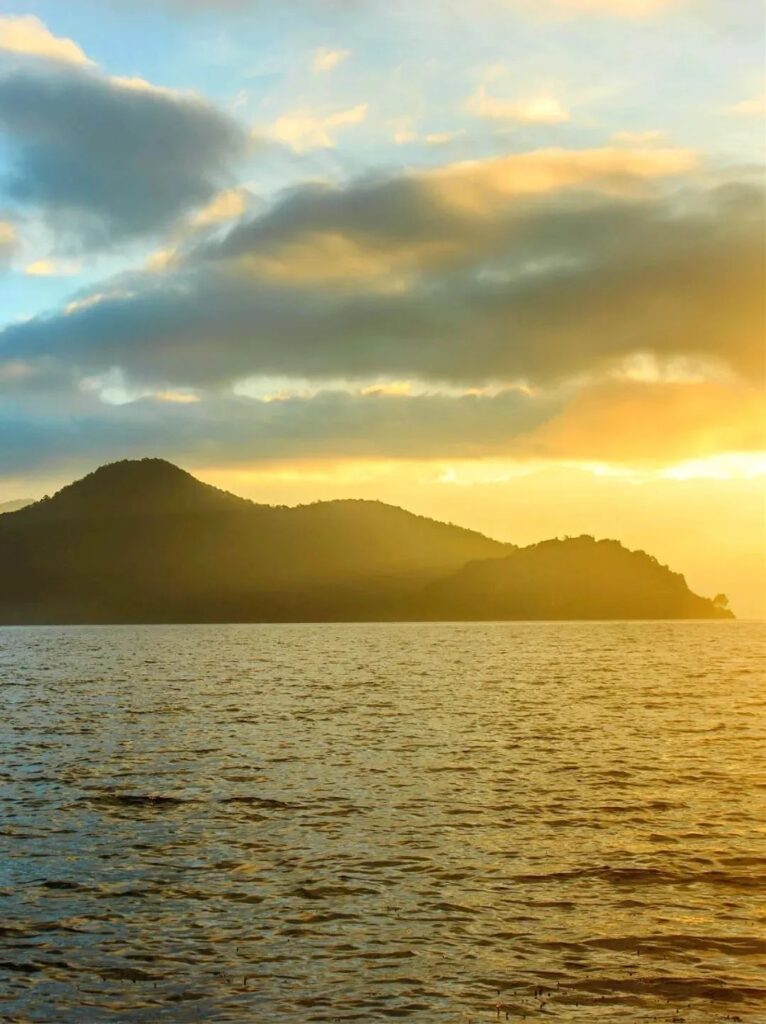
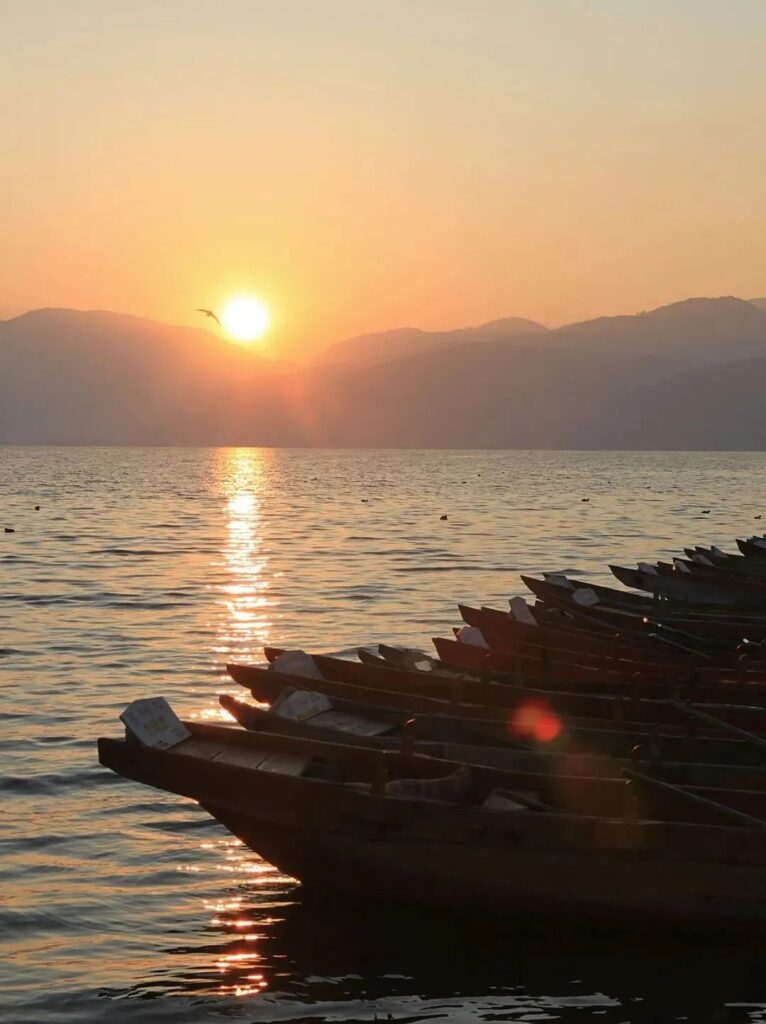
Here, you must not miss the sunrise at Luowa Pier and Dazu Village. As the first light of dawn emerges and the sky gradually brightens, a red glow illuminates the distant indigo mountain peaks, unfolding like an exquisite ink painting between heaven and earth. This awe-inspiring sight is a beauty that words cannot adequately describe.
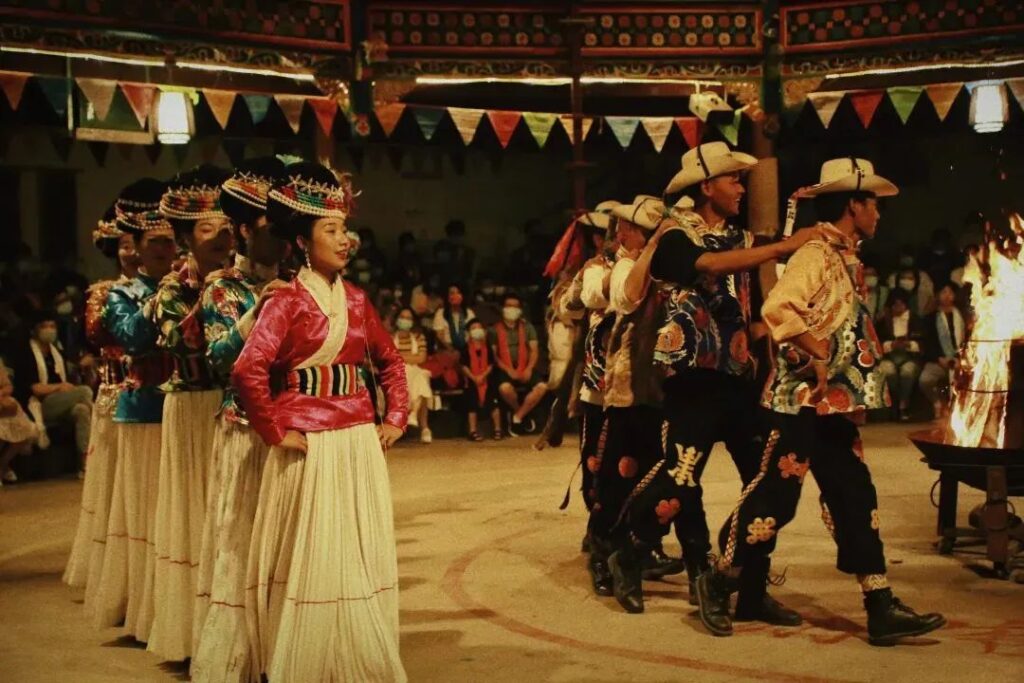
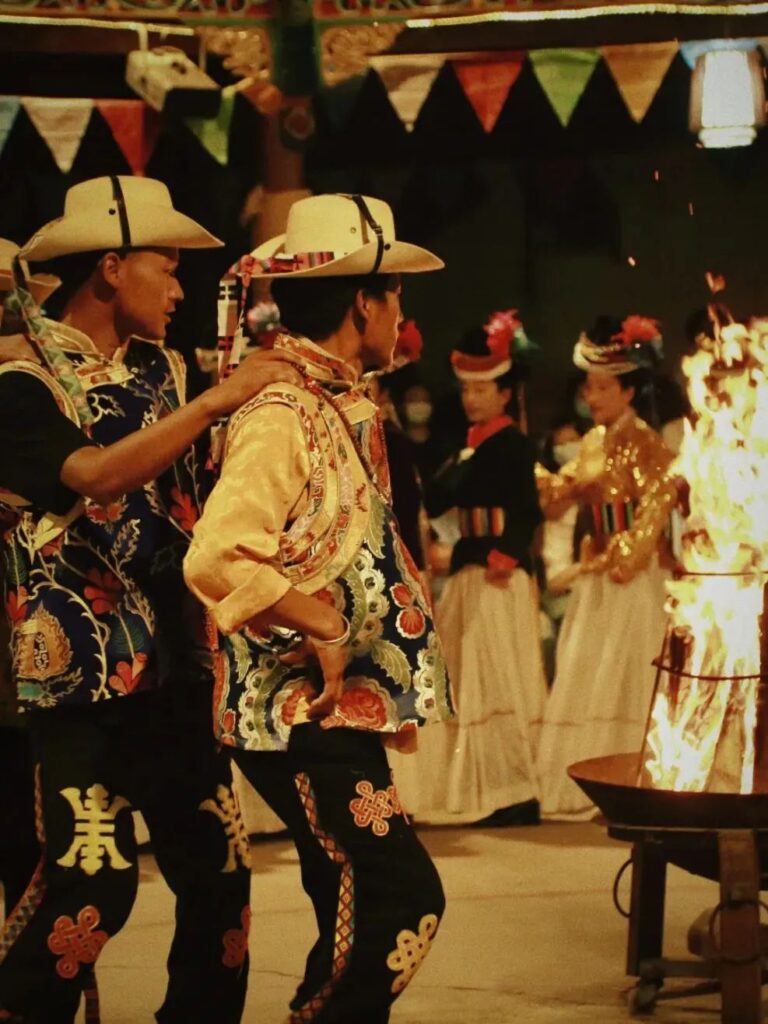
The nights at Lugu Lake are equally spectacular! “Hey! Hey! Hey!” The traditional Mosuo dance, Jiacuo, invites you to join the carnival. Melodious flute notes flow through the air as people link arms, singing joyfully and dancing into the venue. In the center of the crowd, flames burn brightly, competing with the stars to illuminate the dark night sky.
The Living Fossil of the Matriarchal Family
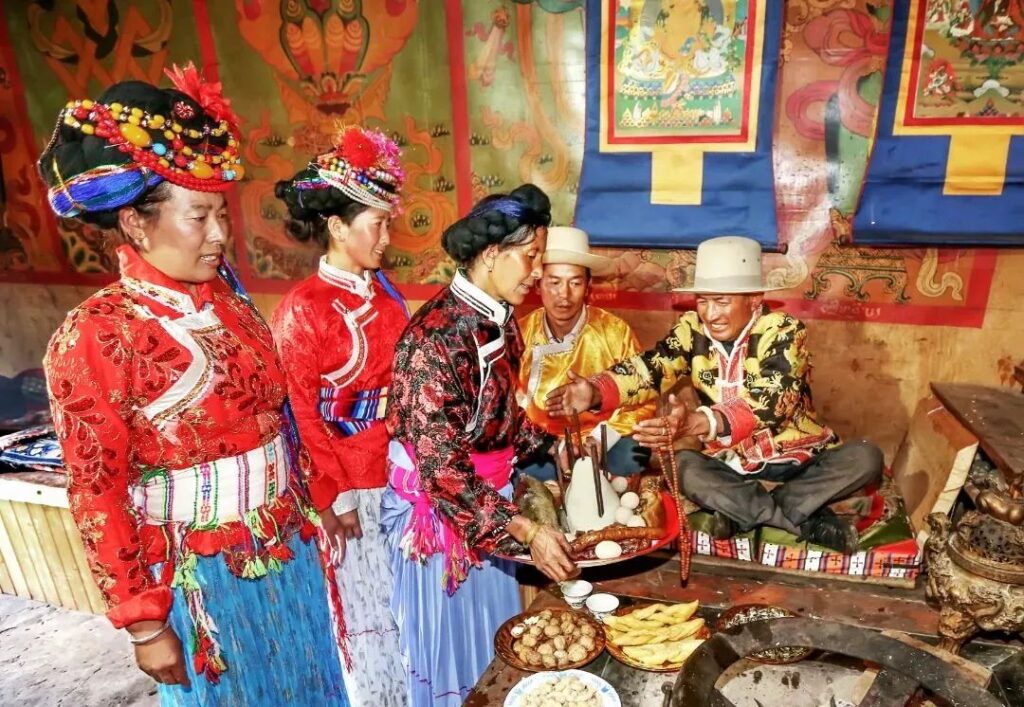
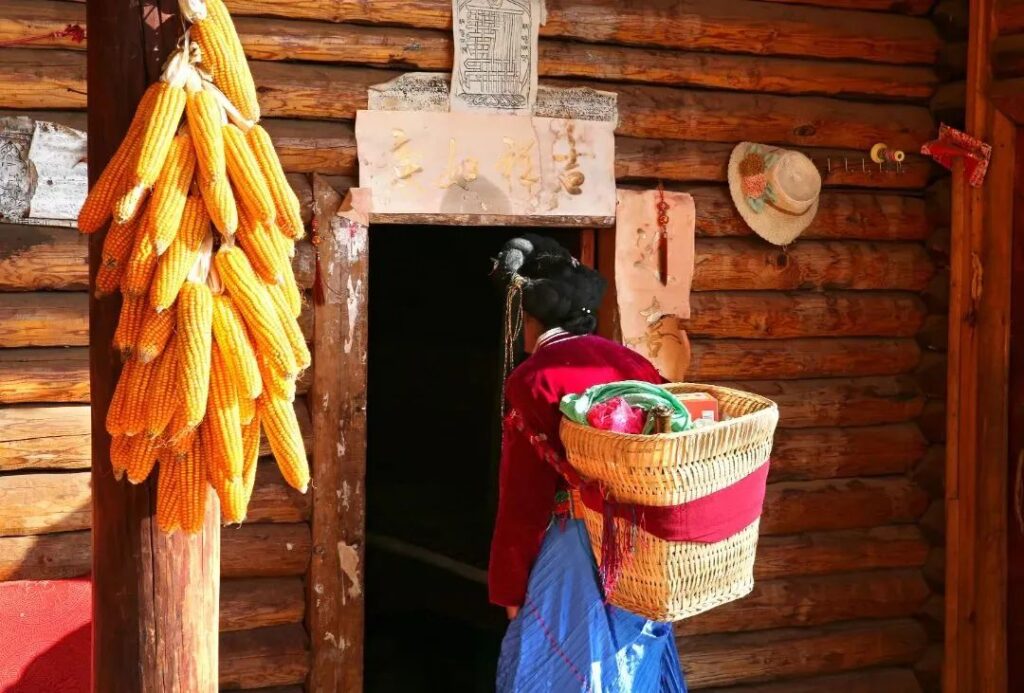
Lugu Lake is not only a natural scenic spot but also the ancestral home of the Mosuo people for generations. The Mosuo culture, particularly its matriarchal family system, has become a valuable window for exploring the history of human social development.
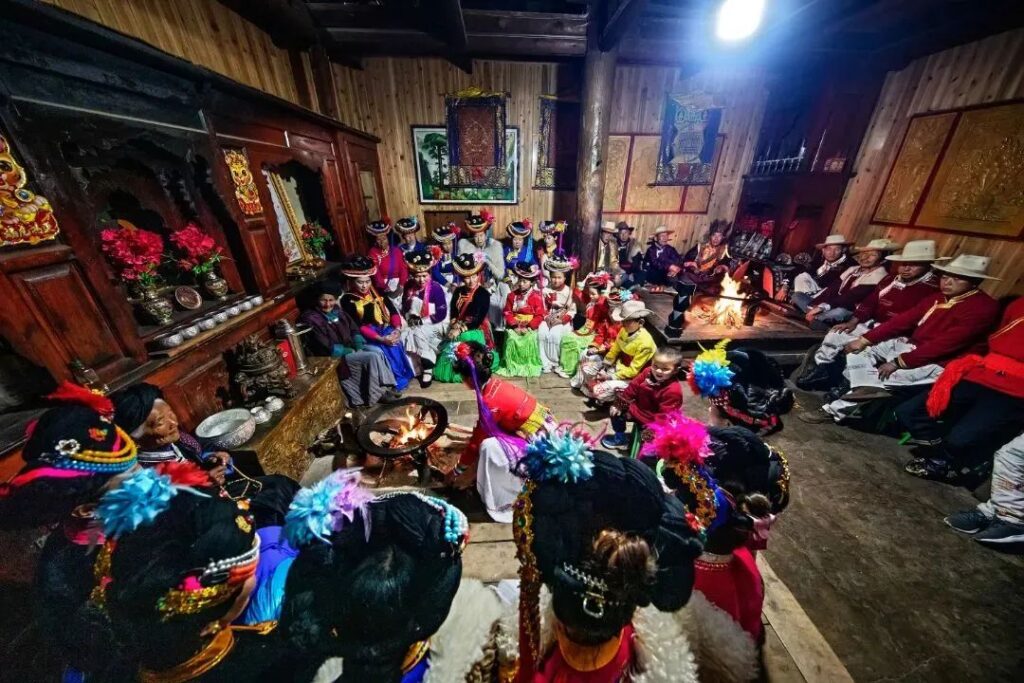
Most Mosuo people living around Lugu Lake still maintain and uphold the “matriarchal family” system. A typical family consists of three or more generations of women, their siblings, and children. The most capable woman in the family takes on the role of “Dabu” (female head of the household), managing household affairs, arranging production and daily life, as well as overseeing property management and external affairs.
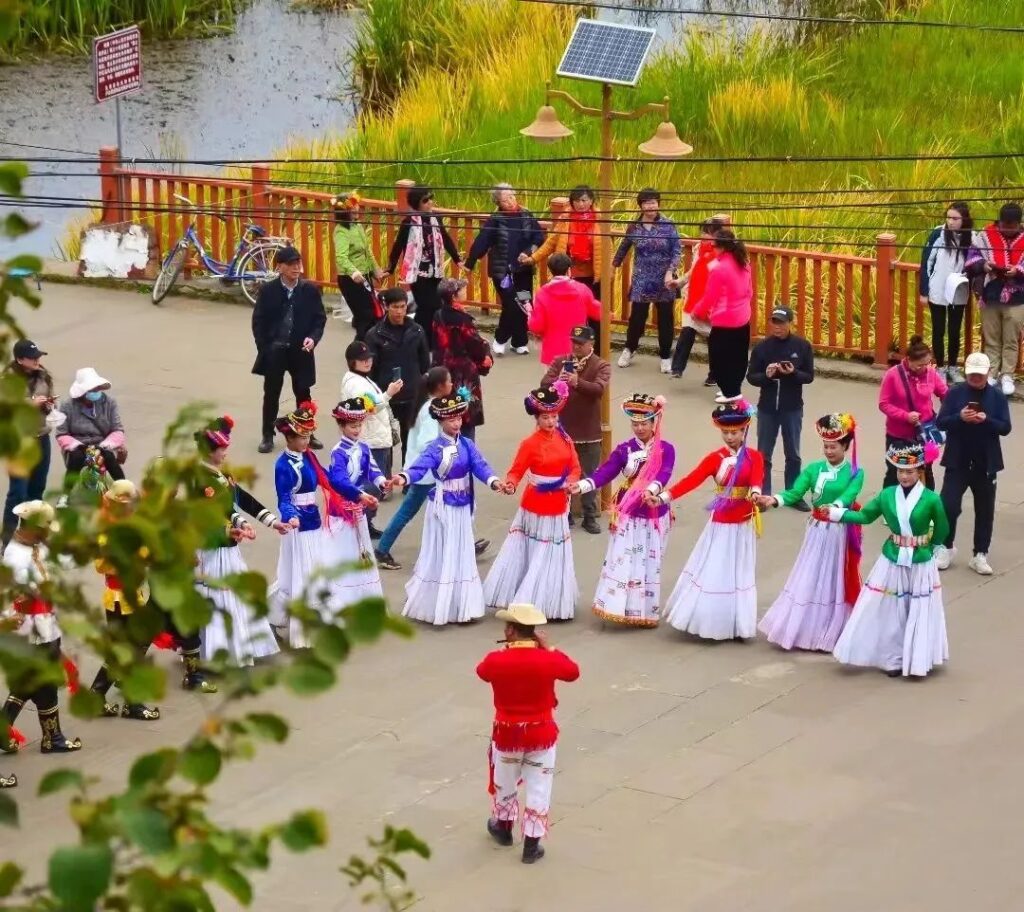
In Mosuo culture, marriage is not a necessary condition for establishing a family. The Mosuo people practice a “walking marriage” system, where the man visits the woman’s home at night and returns to his maternal home the following morning.
The couples involved in a walking marriage are not considered members of each other’s families. Children born from these unions are raised by the mother’s family and take the mother’s surname. The walking marriage between lovers is free from interference and is purely based on emotional connection, with the freedom to come together or separate.
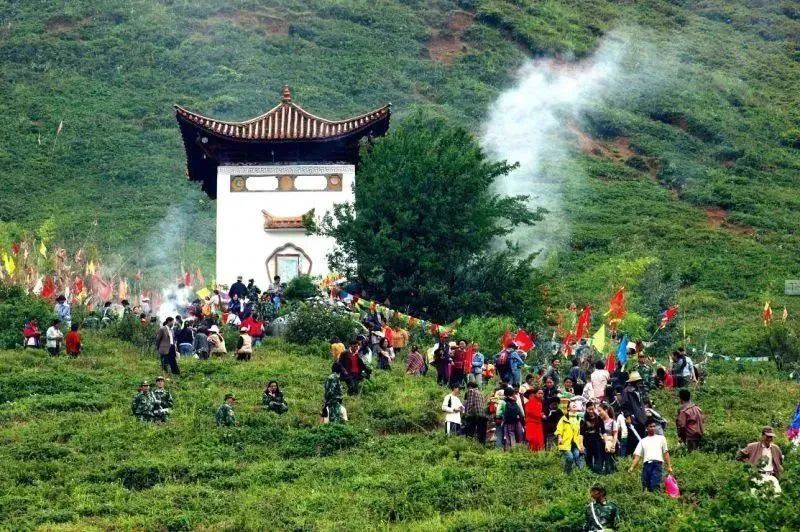
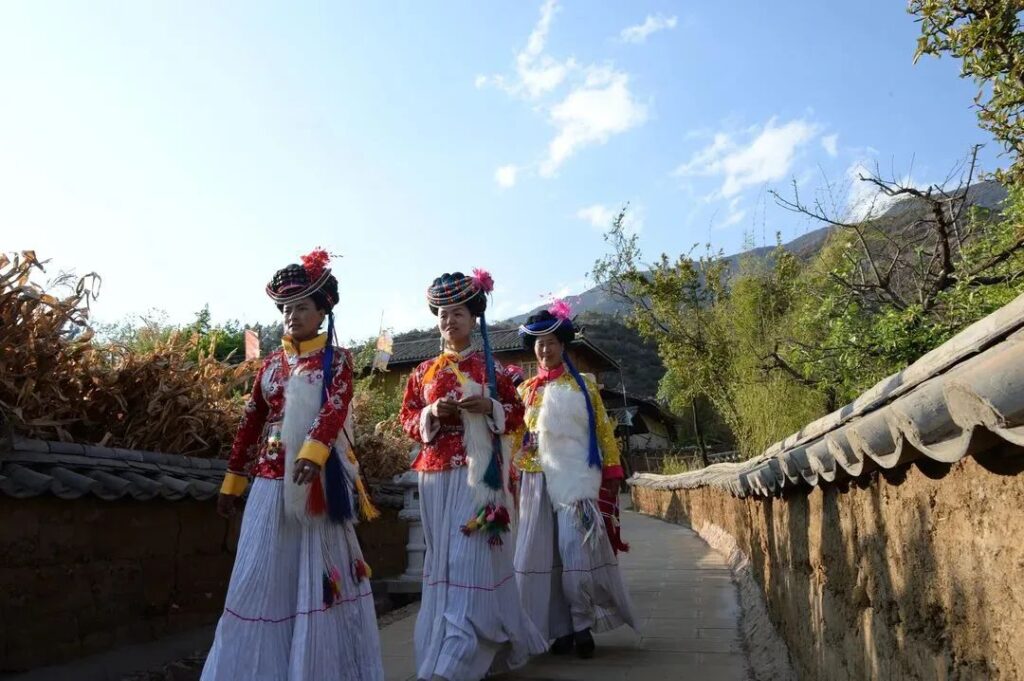
The annual “Mountain and Lake Circling Festival” is the most joyous moment for the Mosuo people. On the morning of the festival, people of all ages rise early, don colorful garments, prepare sumptuous meals with meat and wine, and leave their villages in groups.
Some walk, some ride horses, and others row boats, following traditional mountain paths and waterways to circle the mountains and lake. From dawn to dusk, Lugu Lake is filled with laughter and joy, with songs echoing through the mountains and waters, and the lingering smoke from ritual offerings rising endlessly.
A Feast for the Taste Buds: Mosuo Cuisine by Lugu Lake
When visiting Lugu Lake, one must savor the most authentic local delicacies.
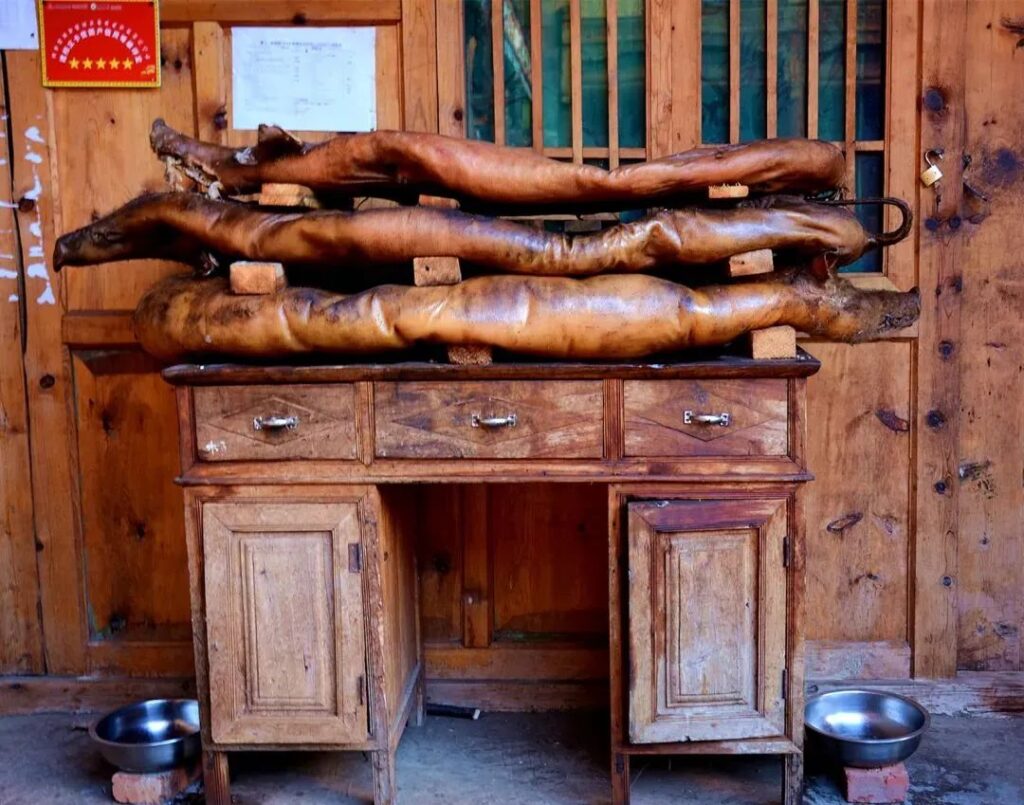
In traditional Mosuo cuisine, pork fat occupies a significant position. After slaughtering a pig, the internal organs are removed through the abdominal incision, and the bones are extracted.
The meat is then rubbed with salt, Sichuan pepper, and other spices before the incision is sewn up, maintaining the integrity of the whole pig. The meat is then pressed into a pipa shape and can be preserved for years without spoiling. It is one of the main dishes of the Mosuo people, rich but not greasy.
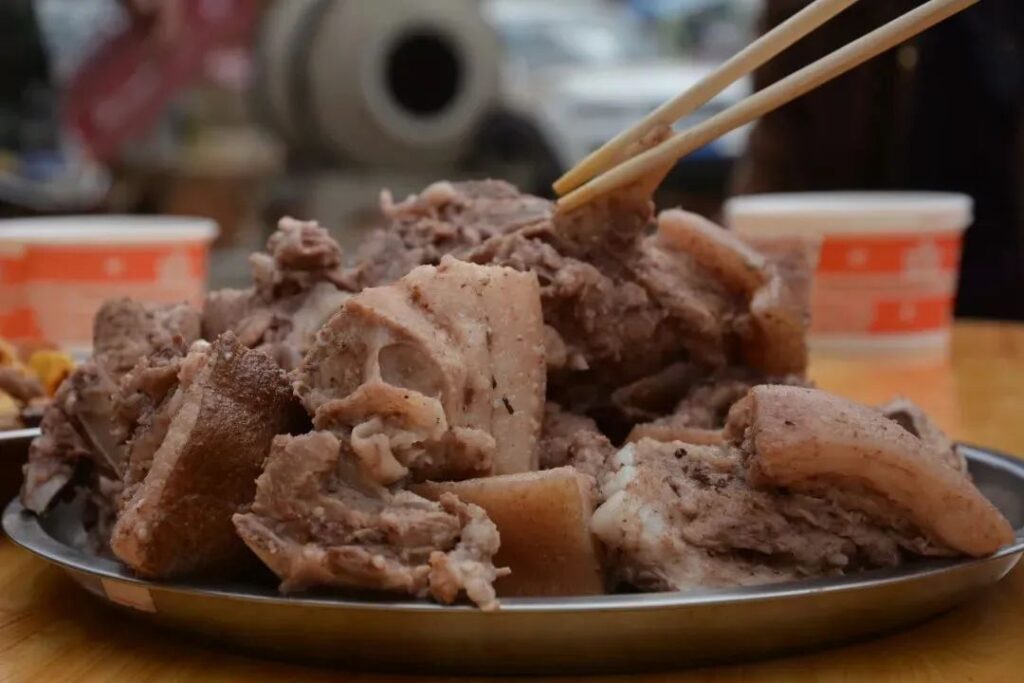
Tuotuo meat is another essential food for festivals and picnics. When consumed, it is accompanied by pickled sour vegetable soup, resulting in a deliciously fresh and tender meat that is rich but not oily.
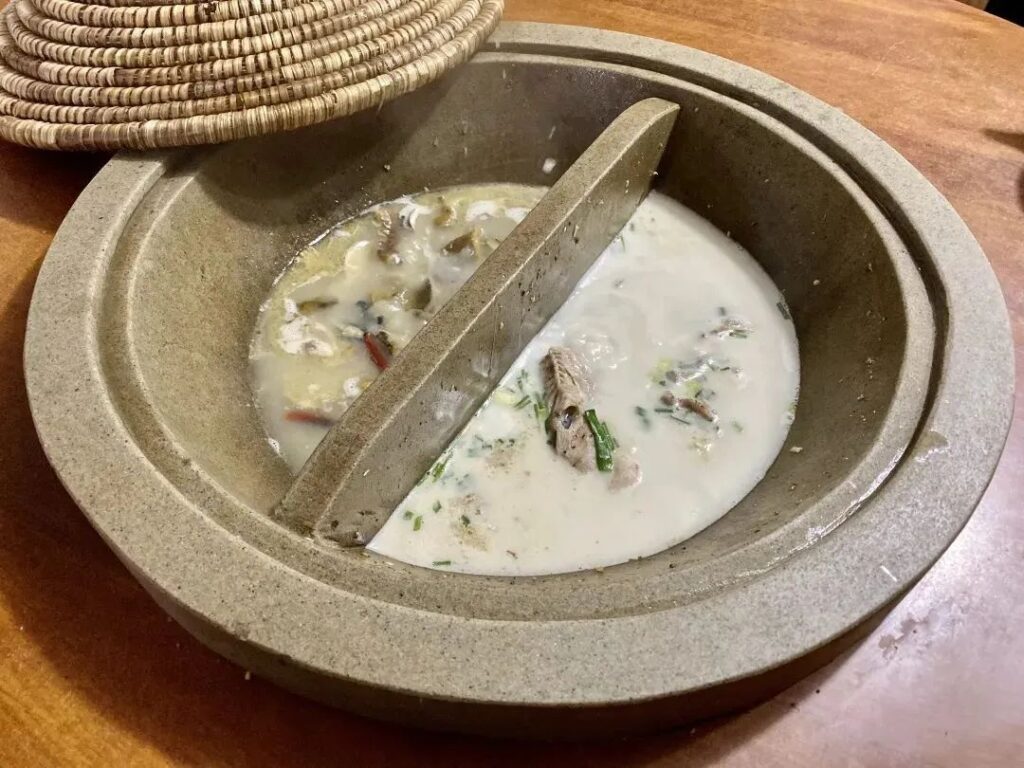
The deliciousness of steamed stone pot fish lies in the freshness of the fish and the sweetness of the water, creating a pot of sweet, delicious, and fragrant fish soup.
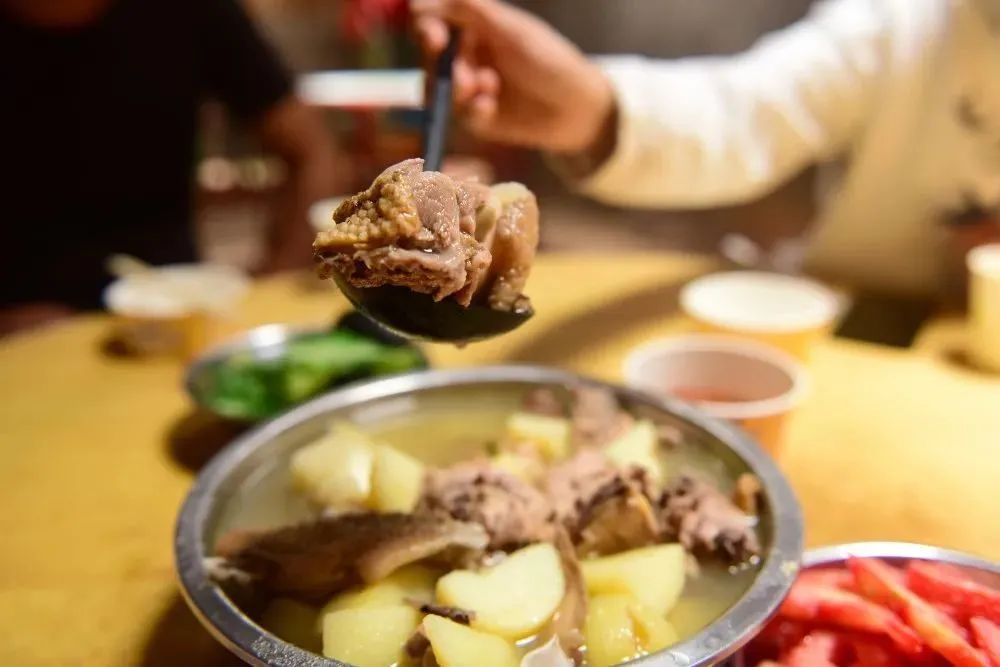
Matsutake mushroom stewed with free-range chicken features wild-picked matsutake mushrooms, which are slightly white in color, have a great texture, and a strong aroma, making them highly nutritious.
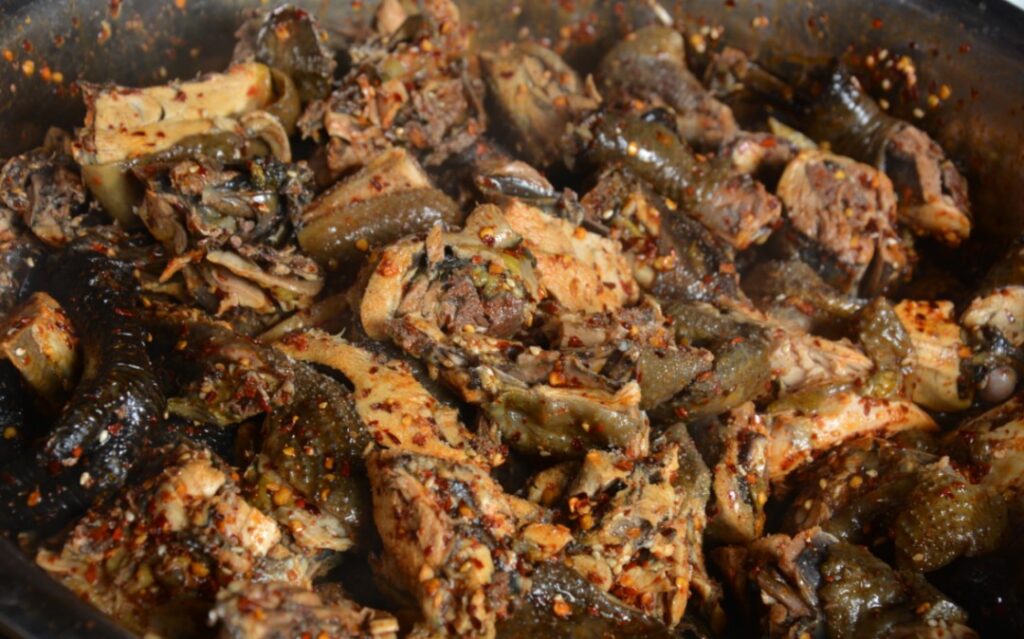
Lugu Lake’s Sichuan pepper chicken is a mouth-watering dish with a mellow, salty, and fresh taste, coupled with a soft and tender texture.
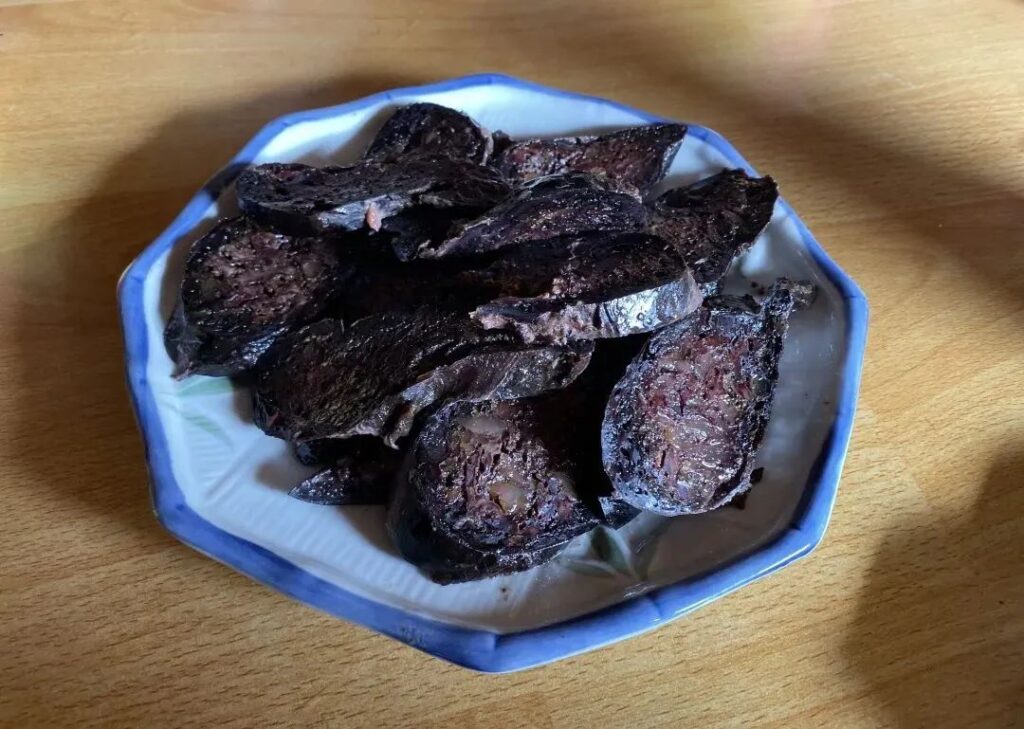
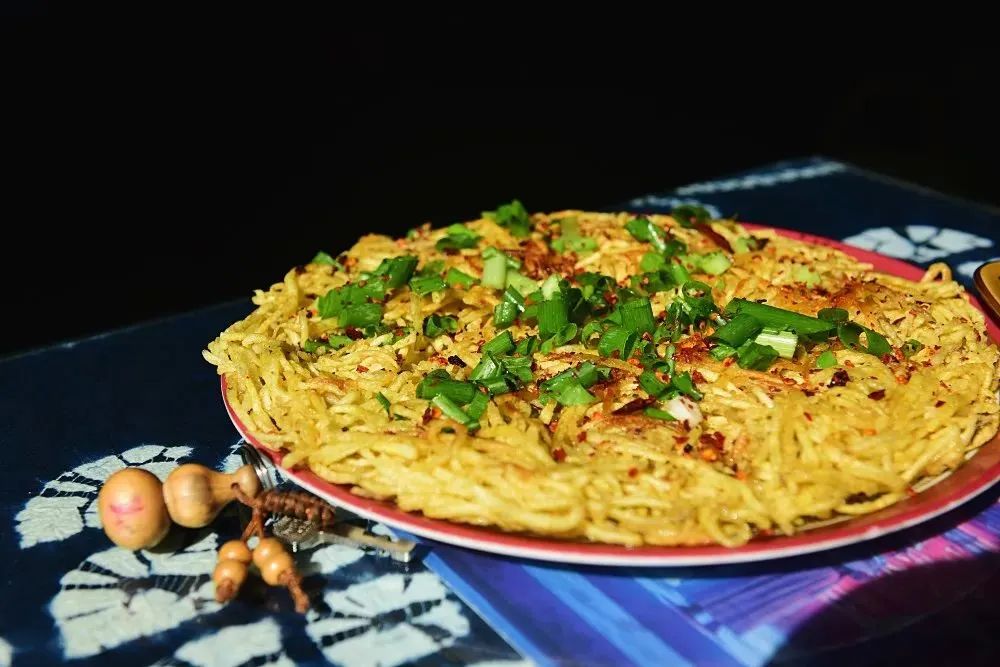
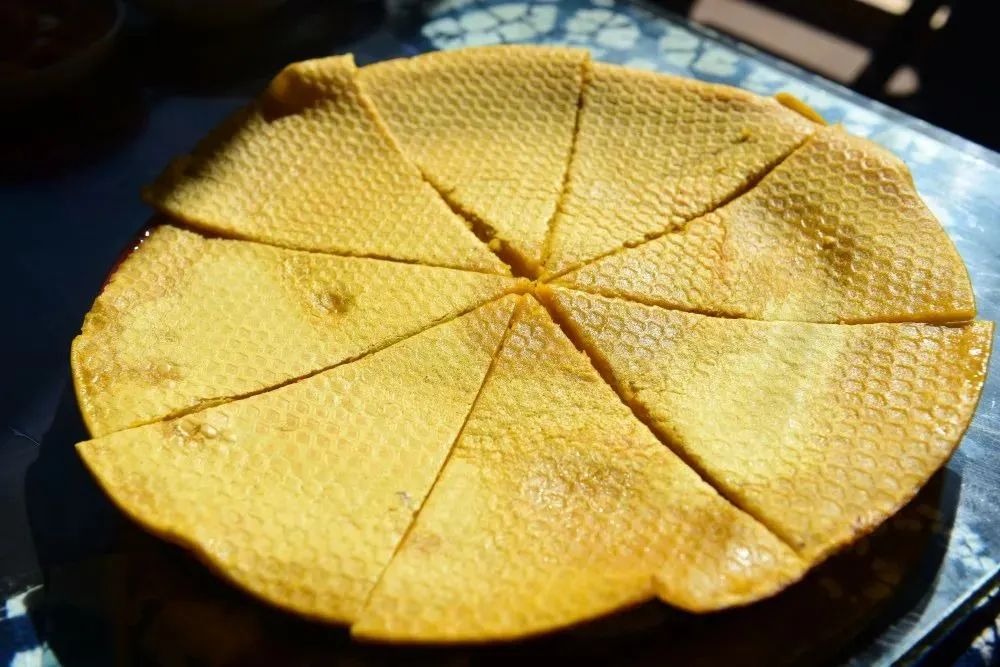
Other delicacies such as blood sausage, potato cakes, buckwheat pancakes, sugar candy, and silverfish fried with eggs also offer unique flavors.
Pack your bags and embark on a relaxing journey to Lugu Lake!


